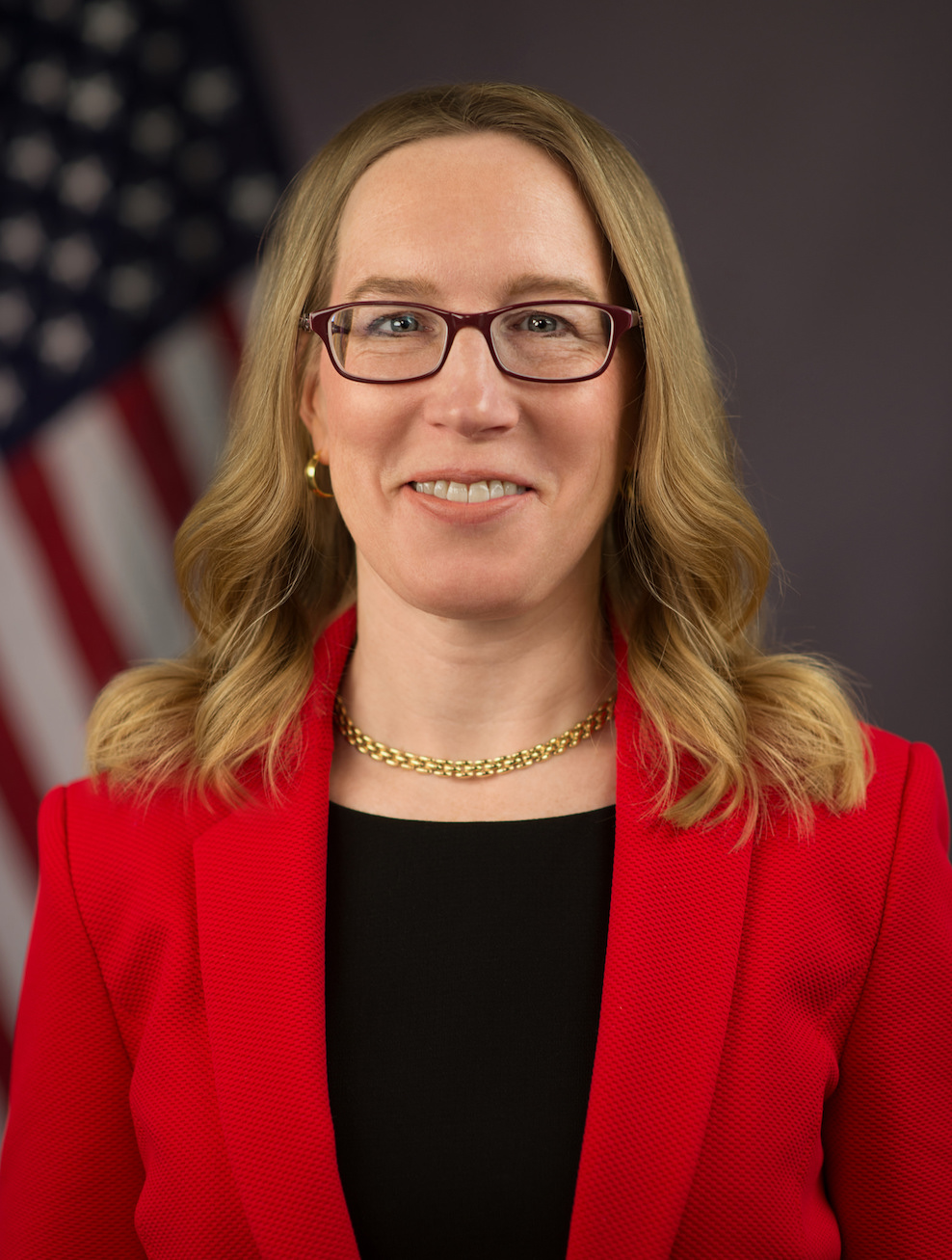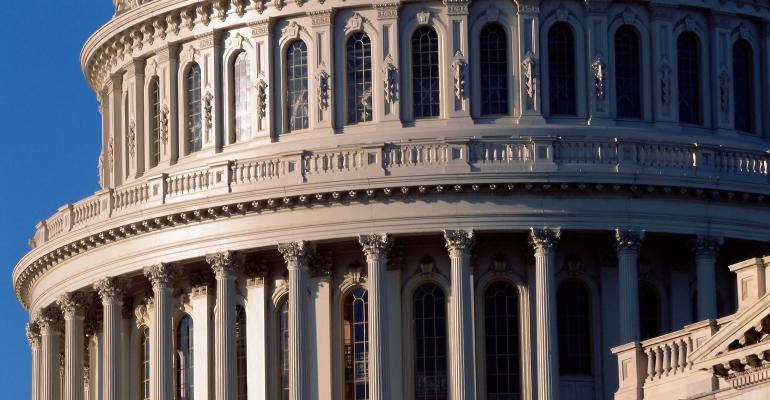COVID-19, cryptocurrency and fabricated public comments were just a few of the topics broached during a hearing of the Senate Committee on Banking, Housing, and Urban Affairs with testimony from Hester Peirce and Caroline Crenshaw. The hearing was the next step in the process toward an eventual Senate vote on their nominations for the SEC.
Peirce has already been on the commission since Jan. 2018 and is looking to be renominated for an additional five-year stint. Caroline Crenshaw was nominated to replace former Commissioner Robert Jackson Jr., who left the SEC in February. Crenshaw cited her experience as counsel at the SEC for both Jackson and former Commissioner Kara Stein in her opening remarks and called the retirement crisis one of the country’s chief issues.
Hester Peirce
“The nation’s shift from defined benefit pension plans—which my parents, and their parents relied upon for their futures—to defined contribution plans, moved the responsibility of lifelong saving from employers to individuals,” she said. “With investment decisions now largely in the hands of individual Americans, the Commission should do all it can to ensure everyone gets a fair deal.”
Sen. Sherrod Brown (D-Ohio), the committee’s ranking Democratic member, noted in his opening remarks that it was 10 years to the day since the passage of the Dodd-Frank Act and said the country faced an even greater public health, economic and housing crisis now than when the law was first introduced.
Brown asked Peirce about her recent opposition to a $3 billion penalty levied against Wells Fargo to settle federal inquiries into allegations about the company’s business practices. While Peirce noted that most enforcement actions from the commission are on a bipartisan or unanimous basis, she said she was reticent about levying penalties when shareholders might be the ones to eventually pay the fine.
He also asked Crenshaw how the SEC could “get the most out of” Regulation Best Interest, which started implementation as of June 30. She said it was vital for the SEC’s Office of Compliance Inspections and Examinations (OCIE) and FINRA to effectively enforce the rule.
“That means working with firms to make sure that the Form CRS that is useful to investors, and is information they can understand, and it’s also working with firms to make sure their policies and procedures are appropriate to mitigate conflicts of interest, and to the degree they’re not, we have to be willing to hold those firms accountable when they are not mitigating conflicts of interest,” she said. “We need to make sure over time rules are actually changing the status quo for investors.”
Peirce said that she hoped the commission could begin work toward setting up a kind of regulatory framework for cryptocurrency offerings. Crypto advocates have lauded Peirce’s interest in the topic to the point that she has earned the moniker “Crypto Mom” among some fans. When asked about the dangers of fraud in cryptocurrency markets, she said that there was some fraud with a crypto label, including instances that clearly fall under the SEC’s mandate.
“One thing we can do to improve the landscape is set out clear guardrails and clear guidance about when something is a securities offering, or as I’ve suggested, creating some kind of safe harbor that allows these initial coin offerings to happen, but allows them to happen with certain disclosures,” she said. “I think that would be a good way of separating the wheat from the chaff.”
Peirce also said that it was important to pay close attention to when financial advisors receive inheritances from clients (there is a regulation under consideration at the SEC banning the practice). She noted that seniors are particularly vulnerable and that it was natural to be suspicious when a financial professional was set to receive an inheritance from a client who has died.
Sen. Chris Van Hollen (D-Md.) also questioned Peirce about SEC Chairman Jay Clayton’s testimony in which he cited comment letters from “mom-and-pop” investors in support of an initiative that critics said could limit the power of shareholders through proxy voting. It was later discovered that some letters had been fabricated by an advocacy group in support of the initiative. Van Hollen asked if the commission had received genuine letters of support from mom-and-pop investors in support of the proposal, and Peirce said the commission would get back to him.
“I would appreciate that because I think the reason the Chairman had to settle on what turned out to be manufactured comments was because there weren’t any authentic ones,” Van Hollen said.
During the hearing, senators also heard testimony from Kyle Hauptman to become a member of the National Credit Union Administration Board. According to Committee Chair Sen. Michael Crapo (R-Idaho), senators had until Thursday to submit additional questions with the witnesses asked to respond by next Monday. As of yet, a vote on the two nominees by the Banking Committee has not been scheduled. The President appoints the SEC's five commissioners with the "advice and consent" of the Senate, according to the SEC.





